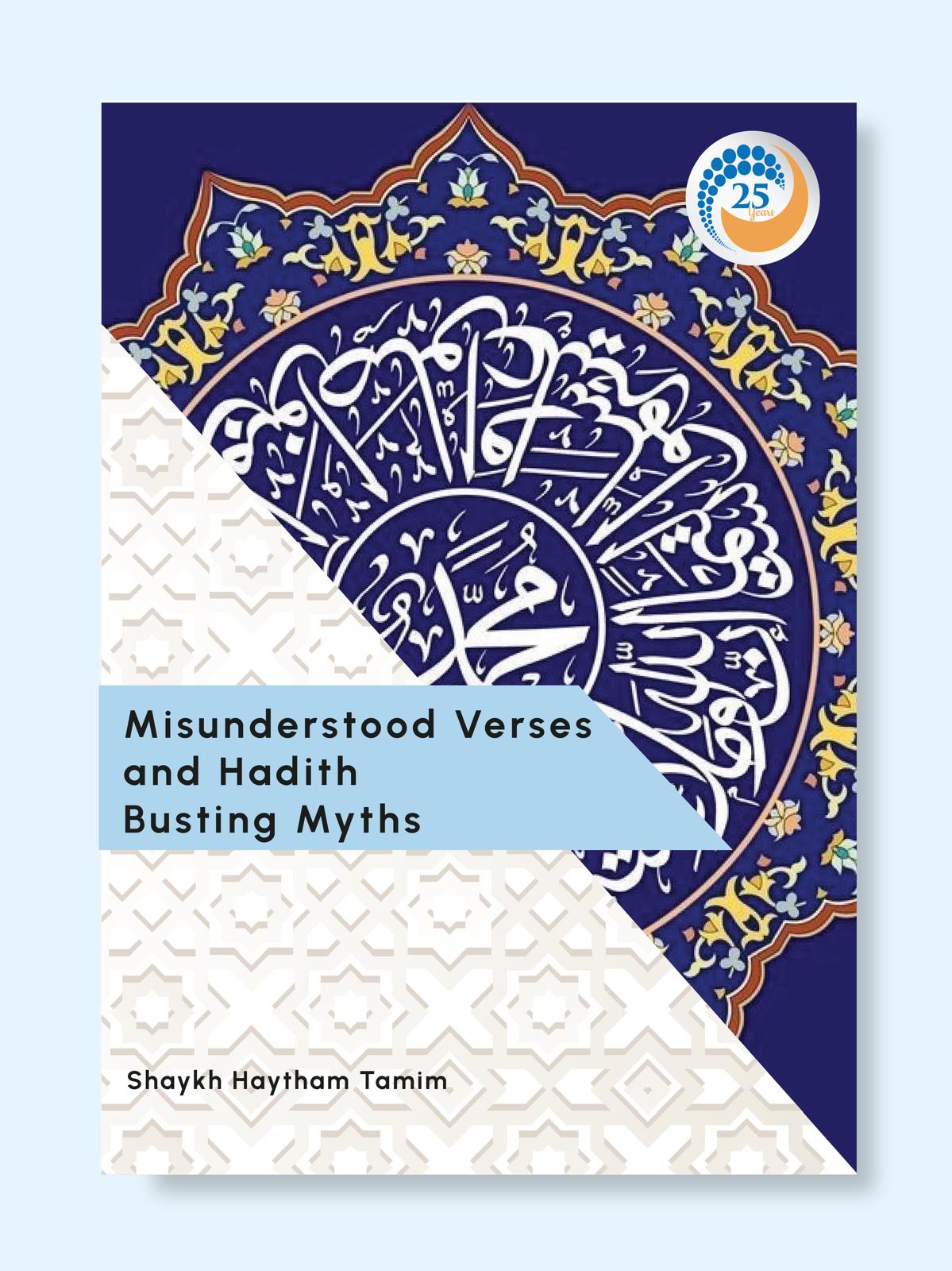Misunderstood Verses and Hadith
£15.00
- Dispel doubt and confusion: Understand what Allah and His Messenger ﷺ really intended, through proper context, language, and scholarship.
- Learn the difference between misuse and meaning: Discover how certain verses and hadith are distorted by cultural practice, literalism, or agenda-driven interpretation.
- Strengthen your confidence in Islam: See how Islamic texts reflect justice, mercy, and wisdom, even when they are taken out of context by others.
- Protect yourself and others from misguidance: Equip yourself with knowledge to defend Islam from within and without, especially on topics related to women, violence, and authority.
This course is ideal for anyone who wants to build clarity, confidence, and sound knowledge when approaching the Qur’an and Sunnah.
Misunderstood Verses and Hadith in Islam
This course provides an in-depth exploration of some of the most misunderstood verses of the Qur’an and narrations of the Prophet ﷺ. With Shaykh Haytham Tamim, we examine controversial texts that are frequently misquoted, misapplied, or weaponised, both within and outside the Muslim community.
In the first part of the course, students are equipped with the principles needed to approach sacred texts with depth and integrity. Topics include:
- Who qualifies as a scholar?
- The importance of linguistic context and asbāb al-nuzūl (circumstances of revelation)
- The authority of the Sunnah and the understanding of the Companions
- How to verify or respond when a fatwa appears questionable
In the second part, the course focuses on verses and hadith that are often misunderstood or taken out of context, such as:
The status of women
Including the misunderstood Qur’anic verse:
﴿وَلِلرِّجَالِ عَلَيْهِنَّ دَرَجَةٌۗ وَٱللَّهُ عَزِيزٌ حَكِيمٌ﴾
And men have a degree (of responsibility) over them. And Allah is Almighty and Wise
(Surah al-Baqarah 2:228)
And the hadith:
I have not seen anyone more deficient in intelligence and religion than you.
In a longer narration, the Prophet ﷺ said:
“O women! Give charity, for I have seen that you are the majority of the people of Hell.”
They asked, “Why is that, O Messenger of Allah?”
He said, “You curse frequently and are ungrateful to your husbands. I have not seen anyone more deficient in intelligence and religion than you. A cautious, sensible man could be led astray by some of you.”
They asked, “What is deficient in our intelligence and religion?”
He said, “Is not the testimony of a woman equal to half that of a man?”
They replied, “Yes.”
He said, “This is the deficiency in her intelligence. Is it not true that when a woman is menstruating, she neither prays nor fasts?”
They replied, “Yes.”
He said, “This is the deficiency in her religion.”
(Sahih al-Bukhari, 304)
Warfare and violence
Including the verse:
﴿فَإِن تَوَلَّوْا۟ فَخُذُوهُمْ وَٱقْتُلُوهُمْ حَيْثُ وَجَدتُّمُوهُمْ﴾
But if they turn away, then seize them and kill them wherever you find them
(Surah an-Nisa 4:89)
And:
﴿وَقَٰتِلُوهُمْ حَتَّىٰ لَا تَكُونَ فِتْنَةٞ وَيَكُونَ ٱلدِّينُ لِلَّهِۖ فَإِنِ ٱنتَهَوۡا۟ فَلَا عُدْوَٰنَ إِلَّا عَلَى ٱلظَّٰلِمِينَ﴾
And fight them until there is no more persecution and religion is for Allah
But if they cease, then there is to be no aggression except against the oppressors
(Surah al-Baqarah 2:193)
﴿ٱلشَّهْرُ ٱلْحَرَامُ بِٱلشَّهْرِ ٱلْحَرَامِ وَٱلْحُرُمَٰتُ قِصَاصٞۚ فَمَنِ ٱعْتَدَىٰ عَلَيْكُمْ فَٱعْتَدُوا۟ عَلَيْهِ بِمِثْلِ مَا ٱعْتَدَىٰ عَلَيْكُمْۚ وَٱتَّقُوا۟ ٱللَّهَ وَٱعْلَمُوٓا۟ أَنَّ ٱللَّهَ مَعَ ٱلْمُتَّقِينَ﴾
The sacred month is for the sacred month, and for the violations is legal retribution. So whoever transgresses against you – transgress against him in like manner as he transgressed against you. And fear Allah and know that Allah is with those who fear Him
(Surah al-Baqarah 2:194)
Obedience to authority
﴿يَـٰٓأَيُّهَا ٱلَّذِينَ ءَامَنُوٓا۟ أَطِيعُوا۟ ٱللَّهَ وَأَطِيعُوا۟ ٱلرَّسُولَ وَأُوْلِي ٱلْأَمْرِ مِنكُمْ﴾
“O you who believe, obey Allah and obey the Messenger and those in authority among you
(Surah an-Nisa 4:59)





